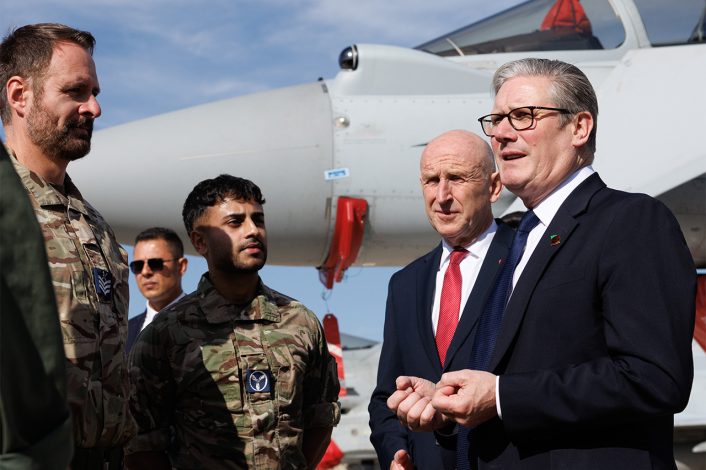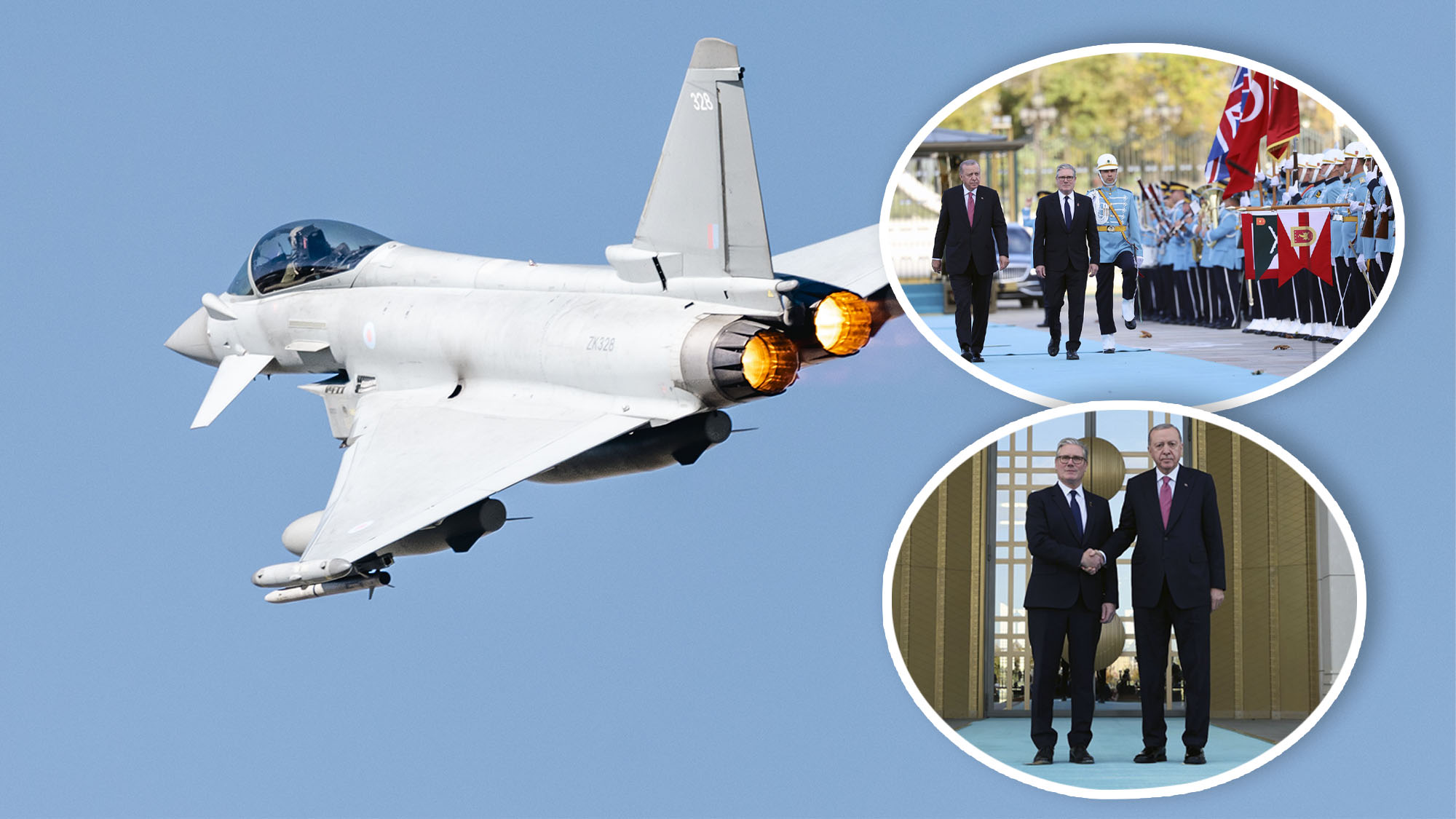The agreement was signed as the UK Prime Minister, Sir Keir Starmer, visited Ankara and met with Turkish President Recep Tayyip Erdoğan while touring Turkish aerospace facilities.
An official release by the UK Government says the deal will guarantee the retention of as many as 20,000 British jobs and sustain the Typhoon production line at BAE Systems’ Warton airfield, along with other UK sites that contribute to the aircraft’s manufacture.
Starmer said “This landmark agreement with Türkiye is a win for British workers, a win for our defence industry, and a win for NATO security,” while Secretary of State for Defence John Healey added “This is another major export deal for the UK and is the biggest jet exports deal in a generation. It will pump billions of pounds into our economy and keep British Typhoon production lines turning long into the future.”
“This deal goes far beyond the procurement of aircraft. It is the leading edge of the growing defence and industrial partnership between our two nations. Türkiye is an important NATO ally and the gatekeeper to the Black Sea. By equipping them with top-of-the-range Typhoon fighter jets, this deal will strengthen NATO deterrence and help make us all safer.”
I’ve just agreed a deal with Türkiye to secure 20,000 British jobs across the UK. pic.twitter.com/n9wCYL7rRj
— Keir Starmer (@Keir_Starmer) October 27, 2025
Turkey will become the Typhoon’s tenth operator, joining the UK, Germany, Spain, Italy, Austria, Oman, Qatar, Kuwait and Saudi Arabia. Speculation ahead of the official announcement referred to the procurement of around 40 Typhoons, double the announced order which refers only to new-build airframes. The remainder may come later, via second-hand purchases from existing operators. As it stands, 20 aircraft would only just about allow for one squadron to be made operational.
Alongside the Typhoon aircraft, the Turkish Air Force will acquire some of the type’s signature weapons, including the MBDA Meteor long range air to air missile.
Originally planning to recapitalise its air force with the F-35 Lightning II, Turkey was forced to revisit its plans after being removed from the F-35 program in 2019 over its decision to press ahead with the procurement of Russian S-400 surface to air missile systems. There were significant fears that data collected by the S-400s regarding the F-35’s radar signature could end up in Russian hands. Attempts to rejoin the F-35 family have been ongoing since then, but the move continues to face opposition in the U.S.
The main focus of any new airframes will be replacing Turkey’s ancient F-4 Phantoms, which first entered service in the country over 50 years ago, as well as some older F-16s. Along with the Typhoon, and potentially the F-35, Turkish Aerospace Industries (TAI) has been developing the purportedly fifth generation Kaan fighter.
UK’s Starmer visits TAI where Turkish fifth generation fighter jet Kaan is designed in Ankara.
Middle East Eye was the first publication reporting his visit to Turkey pic.twitter.com/S4H9VXe9vs
— Ragıp Soylu (@ragipsoylu) October 27, 2025
Earlier this week it was confirmed following a long period of rumour that Turkey would acquire twelve of the RAF’s retired C-130J Hercules aircraft, following refurbishment by Marshall Aerospace. Reciprocally, the TAI Hürjet has been pegged as a contender for the UK’s next jet trainer aircraft. Defence Secretary Healey has already been given a tour of the jet trainer on a previous trip to Turkey, discussions during which will almost certainly have included talks about this Typhoon buy.
Secretary for defence Healey being shown the new TAI Hurjet trainer jet during his visit in Turkey. While there’s a prospective need to replace Hawk T1 in the UK, it seems a bit bold. On the other hand, Turkey will try to get something back if they get Typhoons from Warton… pic.twitter.com/Z94ahO3IOD
— Gabriele Molinelli (@Gabriel64869839) November 15, 2024
RAF Typhoons and crew members were dispatched to Ankara alongside Starmer’s visit, further adding to the media expectation that a deal would be announced today.

The timeframe for delivery is unclear, although BAE Systems says the deal will sustain its production line into the 2030s.


